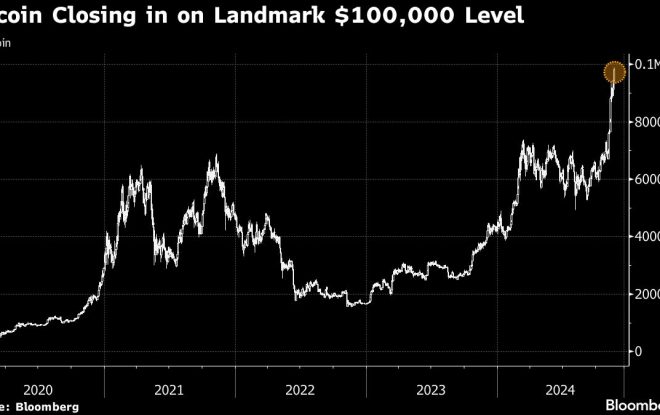4 Dividend Stocks to Double Up On Right Now
If you’re interested in adding more dividend-paying stocks to your portfolio, that’s a fine idea. For one thing, dividend payers tend to be more established and reliable growers, since they have reached a point where management is confident it can commit to a regular payout to shareholders. Better still, dividend-paying stocks tend to outperform non-payers!
For example, a study by Hartford Funds and Ned Davis Research found that from 1973 to 2022, companies that grew or initiated dividend payments delivered annualized returns of 10.3%, while those that didn’t have payouts delivered a 3.95% annualized return and an equal-weight S&P 500 fund returned 7.7% annually. Oh, and the dividend payers were less volatile than their counterparts, too.
Here are four well-known companies that recently had hefty dividend yields. You might want to consider some for your portfolio or your watch list.
1. Verizon Communications
Verizon Communications (NYSE: VZ), with a recent market value near $180 billion, recently had a fat dividend yield of 6.6%. That payout hasn’t been growing briskly lately, but it’s quite generous as is.
Verizon bulls like its strong wireless network and its chances of making it stronger still. Also promising is that Verizon recently announced it’s buying Frontier Communications Parent for $20 billion to expand fiber services in the U.S.
Bears worry about the safety of the dividend, though, given Verizon’s substantial debt load. That’s worth keeping an eye on, but for now the company’s significant cash flow is enough to cover dividend obligations. In a show of confidence, management just increased the payout by 1.9%.
2. Citigroup
Citigroup (NYSE: C) operates one of the largest banks in the country and had a recent market value near $109 billion — and that’s after a recent drop of 16% from its 52-week high. It’s worth understanding that when a stock’s price drops, its dividend yield will increase.
That’s part of the reason the stock’s dividend yield was recently a satisfying 3.6%. Better still, that payout has been rising over time, jumping by 6% in its last increase.
Citigroup has 19,000 corporate clients, including 85% of the Fortune 500, and more than 100 million customers using its credit card, wealth management, and banking services. Close to $5 trillion moves through the company each day.
So why the stock price decline? Well, the company has lagged peers in profitability, and it’s in the process of turning itself around. That involves, in part, selling off its consumer business in Mexico and investing more on wealth management and commercial banking.
3. CVS Health
CVS Health (NYSE: CVS) is another stock that has been facing challenges lately, with its price recently down 31% from its 52-week high, pushing its dividend yield up to 4.7%. That payout has been increased by an annual average rate of 6% over the past five years.
CVS recently had a payout ratio of 45%, meaning that 45% of its earnings are going to dividends. That suggests that the payout isn’t threatened and could have room to grow further.
Why has the stock dropped? While its pharmacy and health services divisions have been performing well, its health insurance business has lagged. Still, overall revenue grew by 2.6% year over year in the last quarter, and earnings per share exceeded expectations.
CVS Health’s stock looks attractively valued at recent levels, with a forward-looking price-to-earnings ratio (P/E) of 7.8, well below its five-year average of 9.5.
4. United Parcel Service
United Parcel Service (NYSE: UPS) is another familiar name, with a recent market value of $111 billion. The stock is down 21% from its 52-week high, pushing up its dividend yield to 5.1%. It’s an impressive delivery business, with more than a half-million employees and more than 22 million packages delivered daily.
The dividend has grown by a robust 11% average over the past five years. But that might not continue in the near future as the stock’s payout ratio is around 100%.
The company has been hurt by Amazon moving to do more of its deliveries itself instead of outsourcing. Still, as UPS cuts costs and welcomes a better economy, its earnings should improve. Our current habit of doing a lot of online shopping isn’t likely to abate anytime soon, so deliveries will continue to be vital.
The stock seems attractively valued, too, with a forward P/E of 14.1, well below the five-year average of 16.2.
Take a closer look at any of these stocks that interest you and know that there are plenty of other attractive dividend payers out there — and dividend-focused exchange-traded funds.
Should you invest $1,000 in Verizon Communications right now?
Before you buy stock in Verizon Communications, consider this:
The Motley Fool Stock Advisor analyst team just identified what they believe are the 10 best stocks for investors to buy now… and Verizon Communications wasn’t one of them. The 10 stocks that made the cut could produce monster returns in the coming years.
Consider when Nvidia made this list on April 15, 2005… if you invested $1,000 at the time of our recommendation, you’d have $715,640!*
Stock Advisor provides investors with an easy-to-follow blueprint for success, including guidance on building a portfolio, regular updates from analysts, and two new stock picks each month. The Stock Advisor service has more than quadrupled the return of S&P 500 since 2002*.
*Stock Advisor returns as of September 16, 2024
John Mackey, former CEO of Whole Foods Market, an Amazon subsidiary, is a member of The Motley Fool’s board of directors. Citigroup is an advertising partner of The Ascent, a Motley Fool company. Selena Maranjian has positions in Amazon and Verizon Communications. The Motley Fool has positions in and recommends Amazon. The Motley Fool recommends CVS Health, United Parcel Service, and Verizon Communications. The Motley Fool has a disclosure policy.
4 Dividend Stocks to Double Up On Right Now was originally published by The Motley Fool




Leave a Reply